Shah Launches Fierce Attack: The political arena in West Bengal heated up significantly when Union Home Minister Amit Shah delivered sharp criticism against the Mamata Banerjee government during his recent visit to Kolkata. Speaking at a party organizational meeting, Shah made bold accusations that could shape the narrative leading up to the 2026 assembly elections.
Shah’s attack focused primarily on what he called the state government’s approach to religious appeasement and border security issues. The senior BJP leader accused Chief Minister Mamata Banerjee of opposing Operation Sindoor to protect her Muslim vote bank, claiming this stance insulted the mothers and sisters of India.
Operation Sindoor Controversy Takes Center Stage
The home minister’s most pointed criticism centered around the state government’s response to Operation Sindoor, India’s military action following the April 22 Pahalgam attack. According to Shah, Banerjee’s opposition to the operation demonstrated her willingness to prioritize political calculations over national security concerns.
“Pakistan-backed terrorists killed our citizens after asking about their religion,” Shah stated during his address. He emphasized that the military operation aimed to punish terrorists, but suggested the chief minister showed more concern for terrorist casualties than justice for victims.
The TMC leadership quickly rejected these allegations, with party representatives stating their unwavering support for India’s armed forces and the central government’s fight against terrorism. This response highlights the deep political divide between the two parties on security matters.
Shah Launches Fierce Attack: Murshidabad Violence Sparks Fresh Debate
Shah also addressed the recent violence in Murshidabad district, calling it “state-sponsored” and accusing TMC leaders of encouraging rioters. The home minister claimed his ministry repeatedly requested the deployment of Border Security Force personnel, but the state government refused to cooperate.
The violence in question erupted in April following protests over the contentious Waqf Amendment Act, of 2025, resulting in three deaths. Shah alleged that central forces were only deployed after high court intervention, suggesting a pattern of state government resistance to federal security measures.
Key aspects of the Murshidabad incident include:
- Clashes in the Muslim-majority district during April
- Protests related to the Waqf Amendment Act
- Three fatalities during the unrest
- Delayed central force deployment
Border Security Becomes Campaign Issue
Perhaps the most significant aspect of Shah’s attack involved accusations about border infiltration. He claimed that Banerjee had deliberately opened international borders to increase her vote bank, suggesting this strategy aimed to secure political power for her nephew, Abhishek Banerjee.
The home minister framed the upcoming 2026 elections as crucial not just for West Bengal but for national security as a whole. This positioning attempts to elevate state-level politics to national importance, making border security a central campaign theme.
TMC leaders countered by questioning Shah’s own record on border management. State minister Chandrima Bhattacharya pointed out that border security falls under the Union home minister’s jurisdiction, suggesting that any infiltration issues reflect federal failures rather than state policies.
Shah Launches Fierce Attack: Law and Order Takes Political Focus
Shah’s criticism extended to the overall law and order situation in West Bengal. He claimed the state had transformed from its historical legacy into a land of infiltration, crimes against women, bomb blasts, and atrocities against Hindus.
The BJP leader specifically mentioned the killing of hundreds of party workers since Banerjee became chief minister, painting a picture of political violence and targeting. This narrative attempts to position the TMC as responsible for deteriorating conditions across multiple sectors.
TMC Responds with Confidence
Despite the fierce attack, TMC leaders expressed confidence about their electoral prospects. Party MP Kakoli Ghosh Dastidar predicted that the TMC would return to power with more than 250 seats, ensuring Mamata Banerjee’s continued leadership as chief minister.
TMC MP Sagarika Ghose condemned Shah’s remarks as inappropriate, especially given the party’s current international representation and strong stance against Pakistan-based terrorism. She emphasized that TMC leadership stands firmly with the Government of India on national security matters.
Shah Launches Fierce Attack: Infrastructure Development Continues
Amid the political rhetoric, Shah also inaugurated the new Central Forensic Science Laboratory building in Rajarhat. This facility represents a significant investment in investigative capabilities for eastern and northeastern states, demonstrating the federal government’s commitment to improving law enforcement infrastructure.
The laboratory’s inauguration provides a counterpoint to the political attacks, showing continued cooperation between federal and state authorities on practical governance issues despite ideological differences.
Looking Ahead to 2026
Shah’s visit clearly signals the BJP’s intention to make the 2026 West Bengal assembly elections a referendum on security, governance, and national priorities. The party appears determined to challenge TMC’s dominance by focusing on issues that resonate beyond traditional state politics.
The home minister’s confident prediction of BJP victory in 2026 sets up what promises to be a highly contested electoral battle. Both parties are now positioning themselves for a campaign that will likely center on competing visions of security, development, and political representation.
As the political temperature continues rising, voters in West Bengal will ultimately decide whether these attacks translate into electoral success or whether the TMC’s track record and organizational strength will prevail once again.

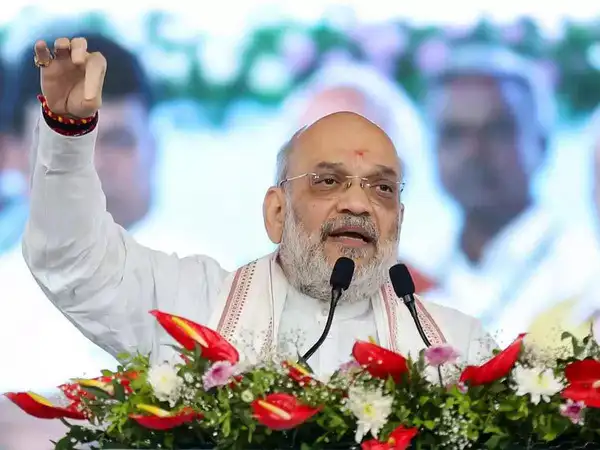
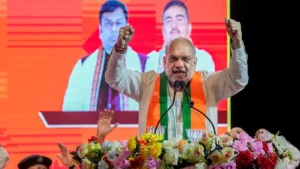
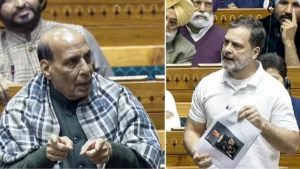
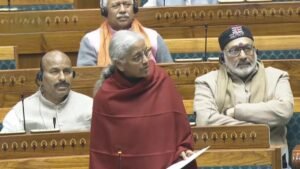
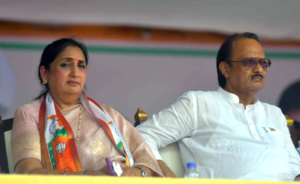
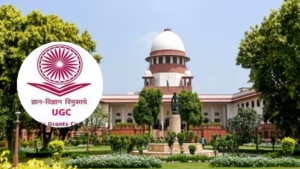

Be First to Comment